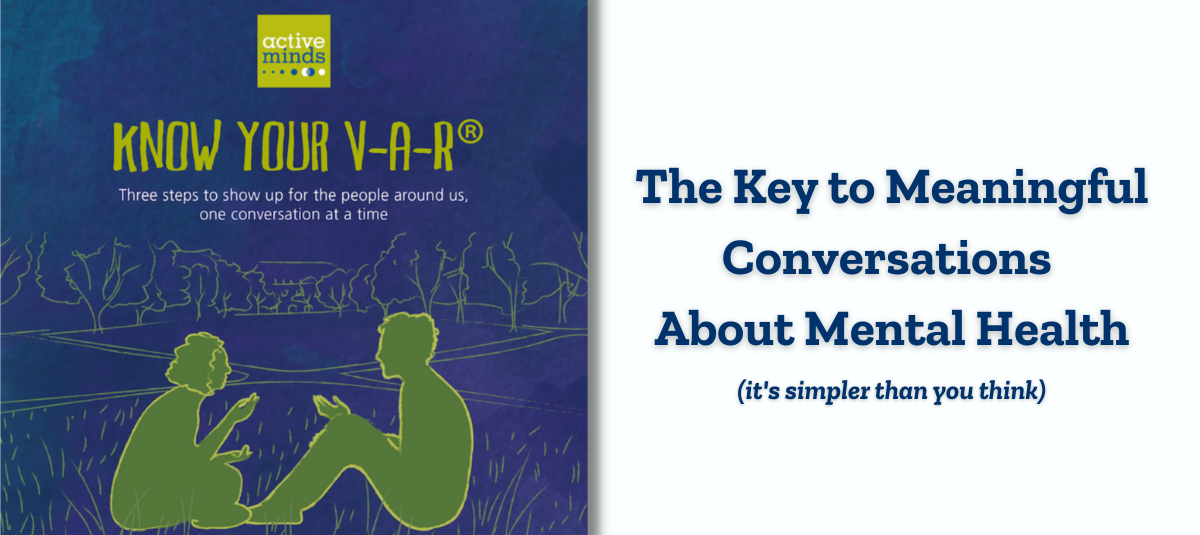When I helped found an Active Minds chapter at my high school, V-A-R® was one of the first pieces of national programming we participated in. As new members of the movement, V-A-R was a relatable and useful skill for us to learn and was simple and effective to promote on our campus. Now, two and a half years later, V-A-R still plays a critical role in our regular chapter programming at The University of Arizona, and in my day-to-day life.
V-A-R, which stands for Validate, Appreciate, Refer, is Active Minds’ everyday tool for everyday conversations. As the name implies, it is made of three versatile and accessible steps that make those around us feel like they’re heard and let them know that they are not alone. It doesn’t take a crisis to need to talk about your mental health, and nothing feels better than having your experiences validated by your peers. As someone who has been on the giving and receiving ends of V-A-R, I know how easy it is to use, and how impactful it is in every conversation.
My freshman year, I stayed at home during the fall semester due to uncertainty about how the semester would go with COVID-19. I eventually moved on-campus for the first time in the spring, but my classes remained almost fully virtual. During this time, my friends and I held each other accountable for checking in on our mental health. At one point, I reached out to a friend who I noticed wasn’t themself. I learned that they were feeling overwhelmed by school and living on their own for the first time during a pandemic. V-A-R taught me how to show that I was there for them and to offer my support and a listening ear. It also helped me through the conversation because I knew I didn’t have to be an expert. I just had to be there. These things can make all of the difference between feeling alone and feeling supported by your community.
Last spring, in the midst of a virtual semester, Active Minds at the University of Arizona had the opportunity to host a V-A-R workshop using the free toolkit, created in partnership with Kendra Scott. Students, even those who were not yet members of Active Minds, were able to walk away with increased knowledge of V-A-R and mental health. This workshop made one thing clear: when we’re there for each other, we can change the culture around mental health on campus.
Our local and national movements are so grateful for Kendra Scott’s partnership with Active Minds to make this resource as accessible, widespread, and impactful as possible. Sometimes, all it takes is to know you have someone in your corner and V-A-R enables us to let others know just that.
Whether you’re already an Active Minds member or are interested in learning more about how you can implement V-A-R all the information you need can be found here.
To learn more about how Active Minds and Kendra Scott are working together to change the conversation around mental health visit the Active Minds website.
Finally, if after having a conversation with your friend, you are still concerned, or feel like what you’re experiencing personally is more serious than just a bad day, review the signs and symptoms of mental illness, or check out this list of referral resources if you feel professional help is needed. We can all play a part in ensuring everyone feels seen and heard, while having access to the help they need.




